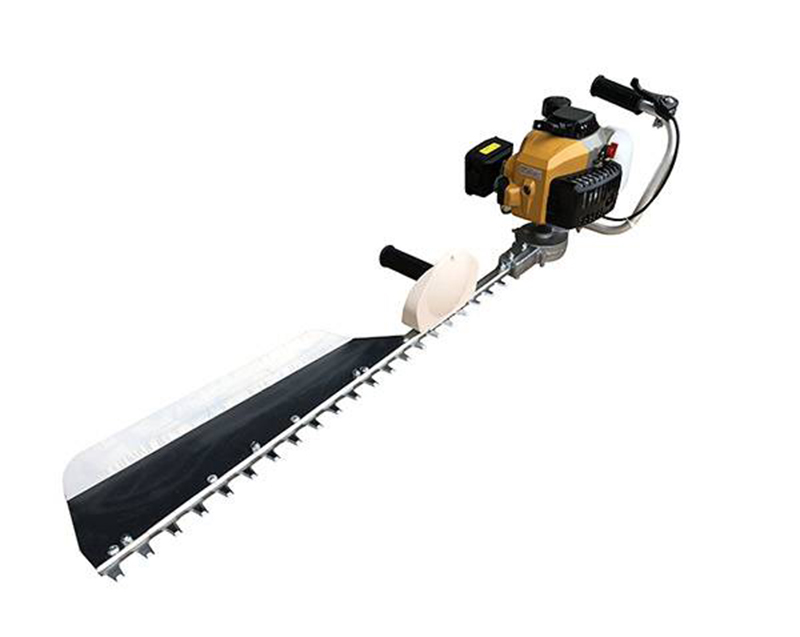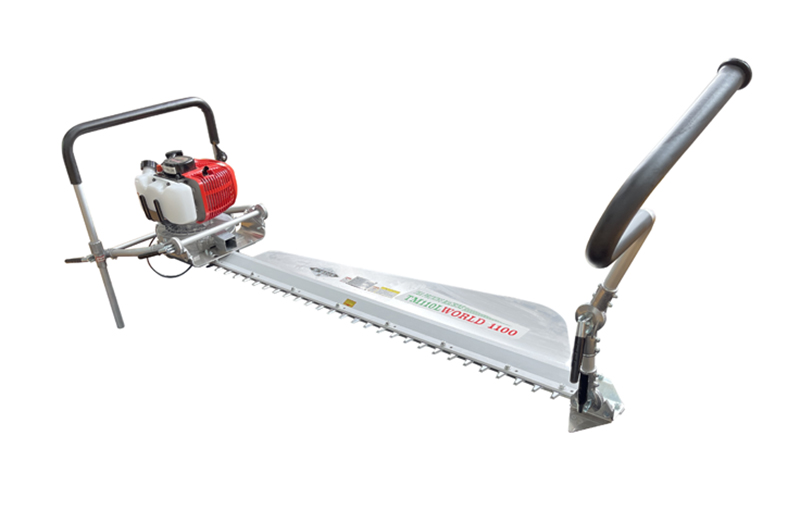The tea tree is a perennial woody plant: it has a total development cycle throughout its life and an annual development cycle of growth and rest throughout the year. Each cycle of the tea tree must be pruned using a pruning machine. The total development cycle is developed on the basis of the annual development cycle. The annual development cycle is restricted by the total development cycle and develops according to the laws of total development.
According to the growth characteristics and practical production applications of tea trees, tea trees are often divided into four biological age periods, namely seedling stage, juvenile stage, adult stage and senescence stage.
1.Tea tree seedling stage
It usually starts from the germination of seeds or the survival of cutting seedlings, the emergence of tea seedlings, and the end of the first growth cessation. The normal time is one year, and the management focus during this period is to ensure water supply, moisture retention, and shade.
2.Tea tree juvenile stage
The period from the first growth cessation (usually winter) to the official production of tea trees is called the juvenile period, which is generally 3 to 4 years. The length of this period is closely related to the level of cultivation and management and natural conditions. The juvenile stage of the tea tree is the period of greatest plasticity. In cultivation, it is necessary to prune with a fixed tea pruner to inhibit the upward growth of the main trunk, promote the growth of side branches, cultivate strong backbone branches, and form a densely branched tree shape. At the same time, the soil is required to be deep and loose so that the root system can be distributed deep and wide. Do not over-pick tea leaves during this period, especially in the first two years of childhood. Try to avoid picking tea leaves.
3.Tea tree adulthood
The adult period refers to the period from when the tea tree is officially put into production to the first time it is renovated. It is also called the young adult period. This period can last 20 to 30 years. During this period, tea tree growth is at its most vigorous, and yield and quality are at their peak. The tasks of cultivation management during this period are mainly to extend the life of this period, strengthen fertilization management, use different types of cutting machine to alternate light construction and deep construction, tidy up the crown surface, and remove diseases and insect pests in the crown. Branches, dead branches and weak branches. In the early stages of adulthood, that is, the initial stage of production, attention should be paid to cultivating the tree crown so that it can quickly expand the picking area.
4. Aging period
The period from the first natural renewal of tea trees to the death of the plant. The senescence period of tea trees generally lasts for decades, and can reach up to a hundred years. Senescent tea trees can still produce decades of yield through renewal. When the tea tree is very old and the yield still cannot be increased after several brush cutting machine updates, the tea tree should be replanted in time.
Post time: Jan-23-2024


